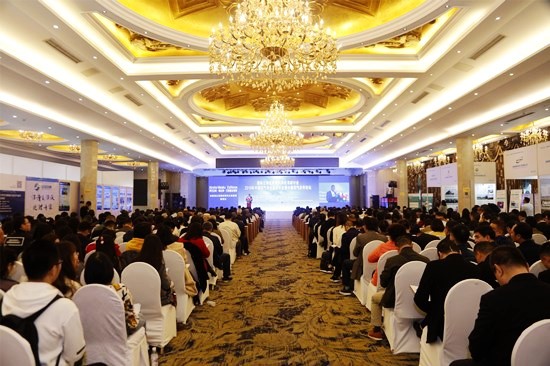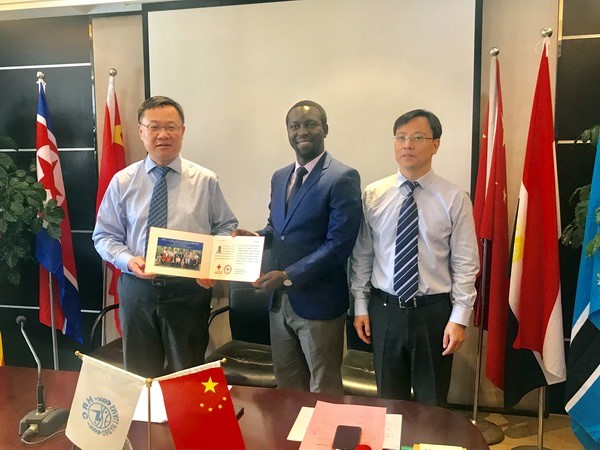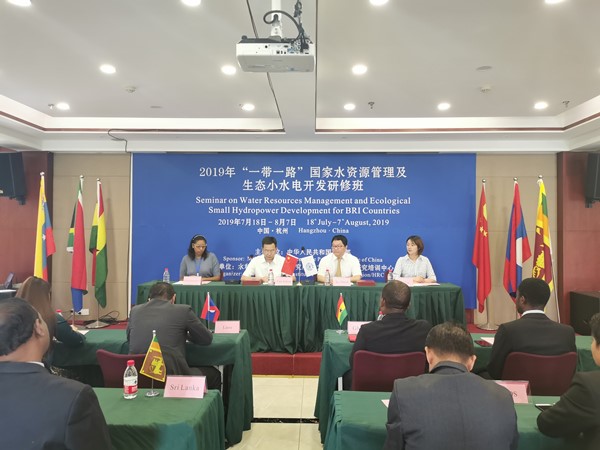In 1949, China emerged from a vicious cycle of debilitating war to found the People's Republic of China with a new promise. Over the years, successive Chinese leaders have worked tirelessly to grant the world's largest country by population the best quality of life.
Looking back, the Chinese dream has stunned the world. China has morphed from the backwaters of development to occupy a position as the world's second- largest economy. China's miracle of lifting over 800 million people, representing 88 percent of the population, out of poverty in barely three decades is astounding. In another 12 months, China is on its way to eliminating poverty. Meanwhile, life expectancy has more than doubled to 77 years compared to 35 in 1949.
China has also left indelible footprints on technological advancements in military power, artificial intelligence, medical research, e-commerce and infrastructure development.
As a rising power, China has chosen to share the proceeds of its success, transferring its technology, capital and products to both developed and developing parts of the world through platforms such as the Belt and Road Initiative. The push for multilateralism by President Xi Jinping has also seen Beijing emerge as a strong supporter of global institutions such as the United Nations in searching for sustainable solutions toward the shared prosperity of humankind.
In 1949, China emerged from a vicious cycle of debilitating war to found the People's Republic of China with a new promise. Over the years, successive Chinese leaders have worked tirelessly to grant the world's largest country by population the best quality of life.
Looking back, the Chinese dream has stunned the world. China has morphed from the backwaters of development to occupy a position as the world's second- largest economy. China's miracle of lifting over 800 million people, representing 88 percent of the population, out of poverty in barely three decades is astounding. In another 12 months, China is on its way to eliminating poverty. Meanwhile, life expectancy has more than doubled to 77 years compared to 35 in 1949.
China has also left indelible footprints on technological advancements in military power, artificial intelligence, medical research, e-commerce and infrastructure development.
As a rising power, China has chosen to share the proceeds of its success, transferring its technology, capital and products to both developed and developing parts of the world through platforms such as the Belt and Road Initiative. The push for multilateralism by President Xi Jinping has also seen Beijing emerge as a strong supporter of global institutions such as the United Nations in searching for sustainable solutions toward the shared prosperity of humankind.
The rise of China was bound to cause anxiety in international politics and governance. Established powers keen to maintain and entrench hegemonic behavior have grown increasingly uncomfortable with China. This can be seen from the current comprehensive competition between China and the United States, exemplified by the raging trade war that now threatens to spiral into a crisis.
Developing economies have instead found new impetus to make life better for their populations, gleaning insights from the Chinese experience. Beijing has proven that countries can achieve greater rejuvenation and prestige in the international stage without following the Western democratic governance model.
As the People's Republic of China marks the 70th anniversary of its formation, the country has become the most visible engine of global economic development. What happens in China is no longer just a Chinese affair. Given the intensity of global economic integration, Chinese actions both at home and abroad have serious implications for the stability, safety and development of the world.
Recognizing the role multilateralism has played in China's meteoric economic rise since its ascension to the World Trade Organization in 2001, it behooves Beijing to continue upholding the principles of globalization and the liberal economic paradigm that places a premium on absolute rather that relative gains.
It is important to remember that it was by avoiding foreign entanglements and focusing on domestic conditions of development that China managed to achieve its unparalleled success. A peaceful rather than confrontational model of rising should be a lasting guide to China's behavior on the international stage. Indeed the sentiments of President Xi during the celebrations of the 70th anniversary that China will not seek to forcefully exert itself against other states is welcome on this front.
At the same time, the international community must strategically adjust to the China phenomenon. A country of 1.4 billion people that represents over 16 percent of the global GDP can't be wished away. Beijing has over the years pushed for a more accommodative, consultative and consensus-driven approach to global governance and cooperation.
There remain credible and sustainable avenues of ensuring cooperation rather than destructive competition across a range of areas including economic, political, cultural, peace and security.
Congratulations to the government and citizens of the People's Republic of China on these 70th anniversary celebrations.
The writer is a scholar in China-Africa relations and PhD student in international relations at Central China Normal
University.







